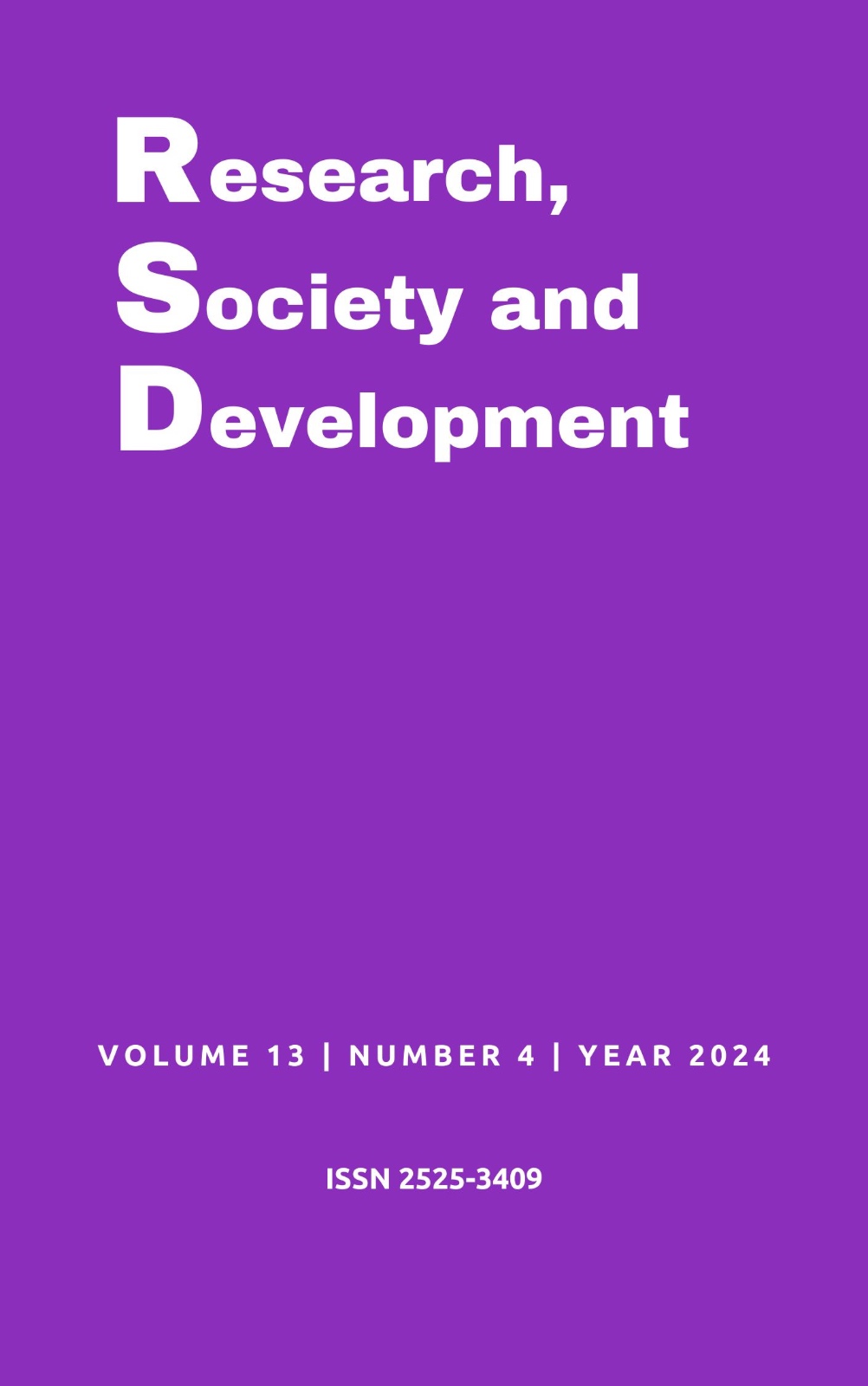What has been studied on cryptocurrencies in Brazil: A systematic literature review
DOI:
https://doi.org/10.33448/rsd-v13i4.42977Keywords:
Cryptocurrencies; Bitcoin; Blockchain; Bibliometry.Abstract
The objective of this study was to identify the researchers and institutions that study cryptocurrencies in Brazil, as well as what is being studied about cryptocurrencies in Brazil. The InOrdinatio Method was used, aiming to equate impact factor, number of citations, and year of publication of each article, allowing studies to be ordered according to these scientific parameters. Results: The first article meeting the research criteria was published in 2015, with half of the papers concentrated in 2017, and one edition dedicated to law and the digital world. No author or institution published more than one paper in the period analyzed, highlighting private institutions in the southern and southeastern regions. With regard to the topics covered, although it focused on bitcoin, it analyzed concepts, legal aspects, regulation, tax aspects, and the use of blockchain. The proposed criteria limited the number of studies analyzed, as many Brazilian journals are not indexed in international indexes such as Journal Citation Reports (JCR), Scientific Journal Rankings (SJR) (Scimago), CiteScore. Conclusion: The study contributes to the academic community through the application of a systematic literature review, presenting the main contributions on a topic that has been gaining the spotlight in the economic, tax, legal, and other areas.
References
Albuquerque, B. S. & Callado, M. C. (2015). Understanding bitcoins: facts and questions. Revista Brasileira de Economia, 69(1), 3-16.
Andrade, M. D. (2017). Tratamento jurídico das criptomoedas: a dinâmica dos bitcoins e o crime de lavagem de dinheiro. Revista Brasileira de Políticas Públicas, 7(3), 43-59.
Ansa Brasil. (2021). El Salvador é 1º país a autorizar bitcoin como moeda corrente. https://ansabrasil.com.br/brasil/noticias/americalatina/centcaribe/2021/06/09/el-salvador-e-1-pais-a-autorizar-bitcoin-como-moeda-corrente_efed6dbc-9bc3-4bc4-b2fc-31099cb4d9b5.html.
Brasil. (2013). Lei nº 12.865, de 9 de outubro de 2013. Autoriza o pagamento de subvenção econômica […]. Diário Oficial da União, Brasília. http://www.planalto.gov.br/ccivil_03/_ato2011-2014/2013/lei/l12865.htm.
Brasil. (2015). Projeto de Lei n° 2303, de 2015. Dispõe sobre a inclusão das moedas virtuais e programas de milhagem aéreas na definição de "arranjos de pagamento" sob a supervisão do Banco Central. Brasília: Câmara. https://www.camara.leg.br/ proposicoesWeb/fichadetramitacao?idProposicao=1555470.
Brasil. (2019a). Projeto de Lei n° 2060, de 2019. Dispõe sobre o regime jurídico de Criptoativos. Brasília: Câmara. https://www.camara.leg.br/proposicoes Web/fichadetramitacao?idProposicao=2196875.
Brasil. (2019b). Projeto de Lei n° 3825, de 2019. Disciplina os serviços referentes a operações realizadas com criptoativos em plataformas eletrônicas de negociação. Brasíla: Senado. https://www25.senado.leg.br/web/atividade/materias/-/materia/ 137512.
Brasil. (2019c). Receita Federal do Brasil. Instrução Normativa RFB Nº 1888, de 03 de Maio da 2019. Institui e disciplina a obrigatoriedade de prestação de informações relativas às operações realizadas com criptoativos à Secretaria Especial da Receita Federal do Brasil (RFB). Diário Oficial da União, Brasília. http://normas.receita. fazenda.gov.br/sijut2consulta/link.action?visao=anotado&idAto=100592.
Brasil. (2019d). Instituto Nacional de Estudos e Pesquisas Educacionais Anísio Teixeira (INEP). Censo da Educação Superior 2018: notas estatísticas. Brasília.
Castello, N. G. (2019). Bitcoin é moeda? Classificação das criptomoedas para o direito tributário. Revista Direito GV, 15(3), e1931.
Clarivate Analytics. (2018). Research in Brazil a report for CAPES by Clarivate Analytics. https://www.capes.gov.br/images/stories/download/ diversos/17012018-CAPES-InCitesReport-Final.pdf.
Comissão de Valores Mobiliários. CVM. (2018). Ofício Circular nº 1/2018/CVM/SIN. Rio de Janeiro, 12 de janeiro.
Follador, G. B. (2017). Criptomoedas e competência tributária. Revista Brasileira de Políticas Públicas, 7(3), 79-104.
Marinho, M. E. P. & Ribeiro, G. F. (2017). A reconstrução da jurisdição pelo espaço digital: redes sociais, blockchain e criptomoedas como propulsores da mudança. Revista Brasileira de Políticas Públicas, 7(3), 142-157.
Pagani, R. N., Kovaleski, J. L. & Resende, L. M. (2015). Methodi ordinatio®: a proposed methodology to select and rank relevant scientific papers encompassing the impact factor, number of citation, and year of publication. Scientometrics, 105(3), 2109-2135.
Paiva Sobrinho, R., Garcia, J. R., Maia, A. G. & Romeiro, A. R. (2019). Tecnologia Blockchain: inovação em Pagamentos Serviços Ambientais. Estudos Avançados, 33(95), 151-175.
Pelucio-Grecco, M. C., Santos Neto, J. P. & Constancio, D. (2020). Contabilização de 'Bitcoins' à Luz das IFRS e Aspectos Tributários. Revista Contabilidade & Finanças, 31(83), 275-282.
Souza, R. G. A. (2017). Território das criptomoedas: limites à regulamentação estatal quanto à circulação de moedas no ciberespaço e possíveis alternativas. Revista Brasileira de Políticas Públicas, 7(3), 60-78.
Downloads
Published
How to Cite
Issue
Section
License
Copyright (c) 2024 Gevair Campos

This work is licensed under a Creative Commons Attribution 4.0 International License.
Authors who publish with this journal agree to the following terms:
1) Authors retain copyright and grant the journal right of first publication with the work simultaneously licensed under a Creative Commons Attribution License that allows others to share the work with an acknowledgement of the work's authorship and initial publication in this journal.
2) Authors are able to enter into separate, additional contractual arrangements for the non-exclusive distribution of the journal's published version of the work (e.g., post it to an institutional repository or publish it in a book), with an acknowledgement of its initial publication in this journal.
3) Authors are permitted and encouraged to post their work online (e.g., in institutional repositories or on their website) prior to and during the submission process, as it can lead to productive exchanges, as well as earlier and greater citation of published work.

